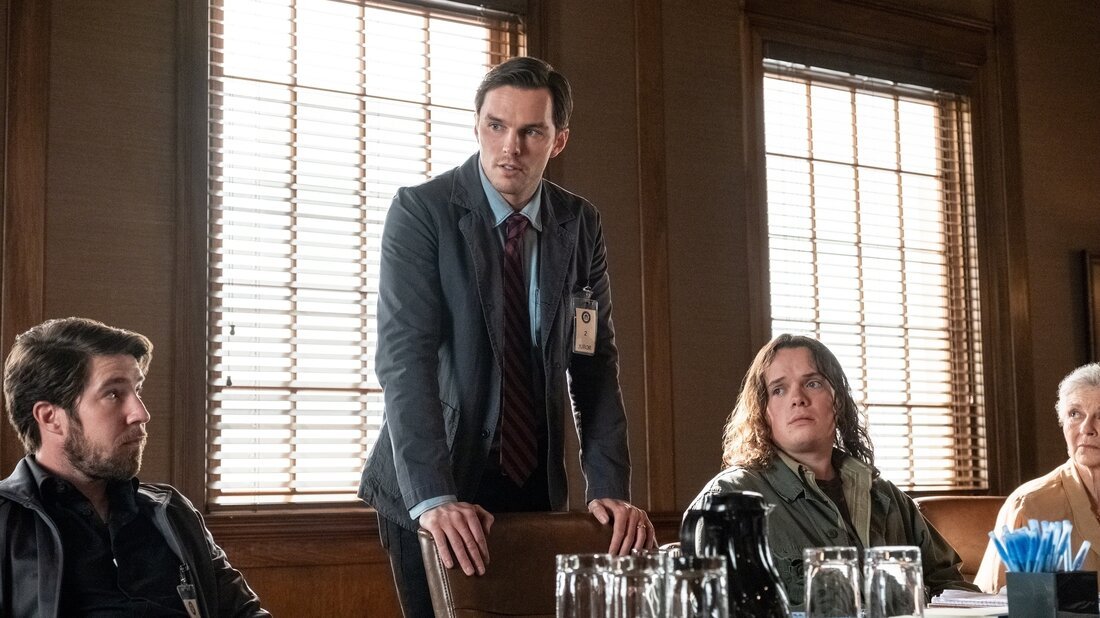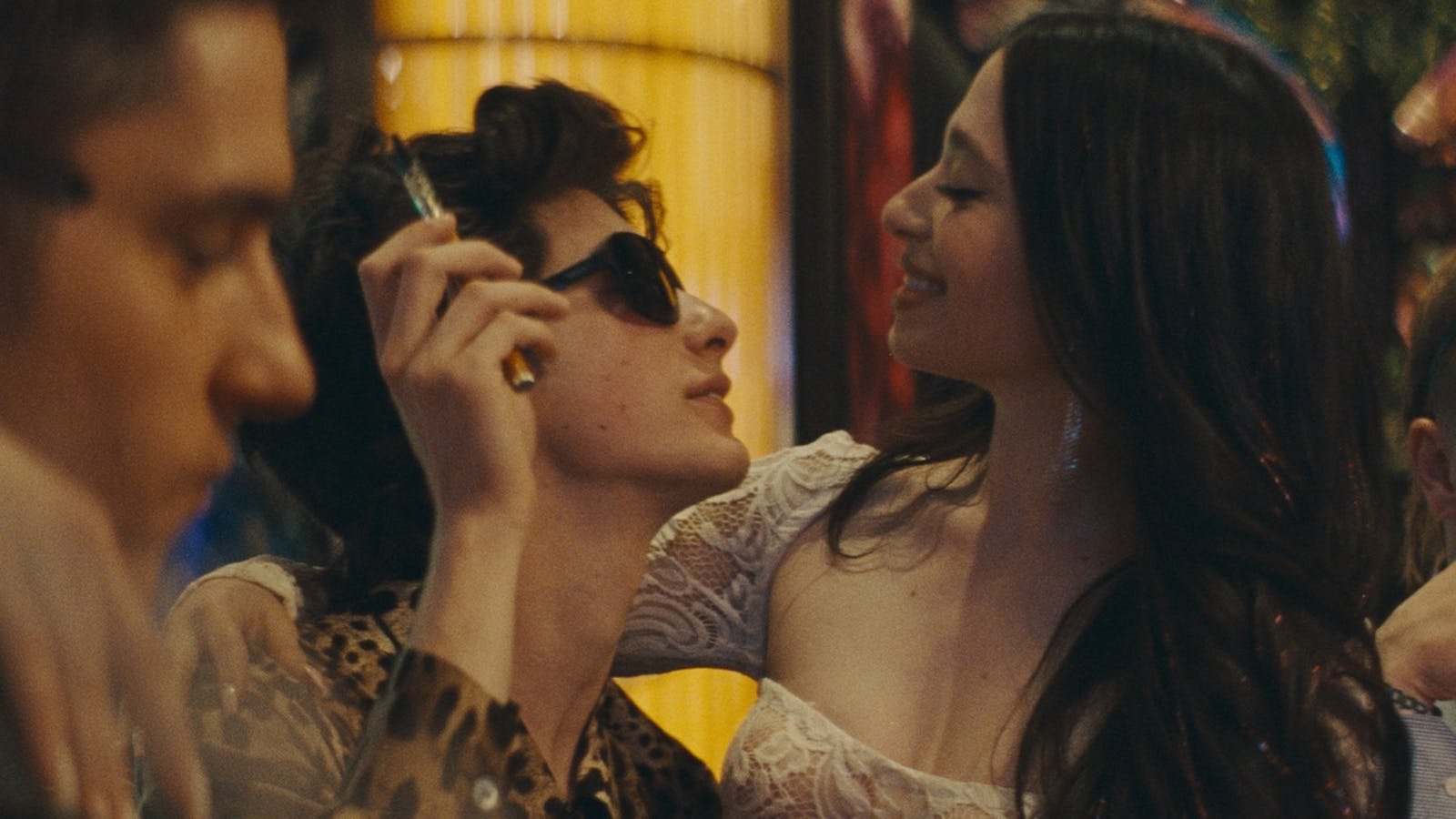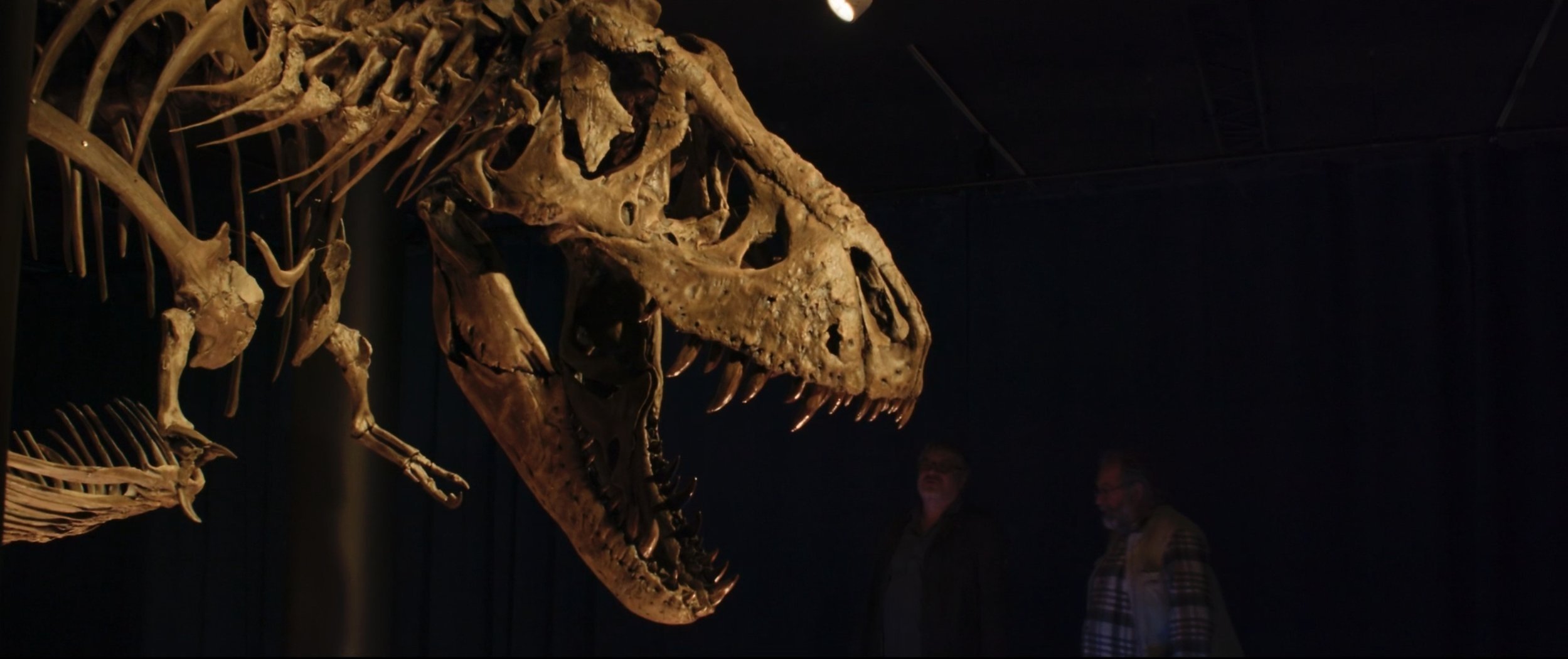Aren's Top 10 Films of 2024
1. Dune: Part Two (dir. Denis Villeneuve)
Dune: Part Two is magnificent, a Hollywood spectacle of the highest order that delivers the sorts of thrills blockbuster cinema is capable of at its best. Few movies look as good or offer as thrilling a climax as the Fremen assault on Arrakeen. It’s also a satisfyingly depressing progression of the arc of Paul Atreides (Timothée Chalamet), with a bummer triumph of an ending that sets up a fascinating antagonism for the eventual sequel, Dune Messiah, which will wrap up Paul’s arc. The film has terrific performances and textured emotional conflicts, but it’s the visceral experience that is most memorable: few movies are as visually or audibly transporting as Dune: Part Two. Most strikingly, it offers a glimpse of what the future of cinema can look like. If most of Hollywood makes me fear for what tomorrow may bring, Dune: Part Two gives me tremendous hope.
2. Juror #2 (dir. Clint Eastwood)
Juror #2 is classical in all the best ways. It’s well-performed with a fascinating dramatic scenario, confidently shot with a minimum of fuss, and thoughtfully interrogates the notion of American justice. It also posed moral questions I’m still wrestling with months after seeing the film. At age 94, Clint Eastwood continues to show what is possible with the form of the classic American drama.
3. Nosferatu (dir. Robert Eggers)
If we were destined to get another Nosferatu remake, I’m glad Robert Eggers made it. His obsessive approach to historical storytelling, which refuses to condescend to the time period, added some terror back into the vampire legend. The film also conjures a hallucinatory, terrifying, beautiful vision of its time period, with breathtaking shots of Gothic castles and moonlit bedrooms and some of the grisliest visions of vampiric violence I can recall on screen. The experience of watching Nosferatu was like having a vivid nightmare, one that is all the more chilling for its inevitability.
4. Anora (dir. Sean Baker)
Initially, I thought the description of Anora made it sound like a cloyingly progressive work, one that is all about representation and destigmatization, which are some of the dullest artistic approaches imaginable. Luckily, the movie is not the early discourse that surrounded it. Anora is a hilarious blend of romantic comedy and crime drama, like a 1930s screwball comedy crashed into a Martin Scorsese picture. The film’s tonal dexterity is something to behold, perhaps no better than during the central kidnapping scene, which shifts between violent slapstick and the actual threat of violence with expert precision. Anora creates an impressively immersive vision of its protagonist’s world and captivates us from start to finish with its surprising emotional and tonal detours. It’s a surprisingly delicate work that’s impressively entertaining.
5. Evil Does Not Exist (dir. Ryusuke Hamaguchi)
Evil Does Not Exist is a cinematic tone poem. Using Eiko Ishibashi’s haunting music as his guide, Ryuske Hamaguchi creates a unified, tonally consistent artistic statement about nature, (both human and wild) and the mysterious impulses that drive people in their lives. Evil Does Not Exist has an intriguing narrative about the conflict between a small town and a “glamping” company that wants to open a resort in their community, but it’s the visual and musical approach of the film that creates the mysterious, lasting impression.
6. Snow Leopard (dir. Pema Tseden)
I’ve never been to the Tibetan plateau (hopefully I’ll visit one day), but the late Pema Tseden’s Snow Leopard made me feel like I inhabited this magical world for a few hours. The little-seen international indie follows the conflict between government officials and farmers who have trapped a snow leopard in their sheep pen. A young Buddhist monk is at the centre of it all, trying to settle the conflict, bridging the gap between the natural and the human worlds. The film is visually dazzling, but it’s also atmospheric and mysterious, depicting the landscape as a realm pitched between heaven and earth, where people and animals are motivated by preternatural spirits and ancient impulses.
7. Challengers (dir. Luca Guadagnino)
For pure entertainment quality, it’s hard to top Luca Guadagnino’s Challengers, which charts a combative love triangle and uses the tennis pitch as its field of battle. The film’s narrative swings and emotional beats are heightened, veering on melodramatic in that classical sense where tension is maintained and the stakes seem high despite the relative inconsequence of the scenario. The three leads are exceptional, especially Josh O’Connor as a rakish agent of chaos, and the score by Trent Reznor and Atticus Ross is electrifying.
8. Made in England: The Films of Powell and Pressburger (dir. David Hinton)
Made in England is a personal journey with Martin Scorsese through the films of Michael Powell and Emeric Pressburger. If you’re interested in Scorsese, the film is fascinating as it shows their enormous influence on his works. But it truly is a celebration of these British directing icons from the 1940s and 1950s, charting their biographies and careers, highlighting their cinematic triumphs, and focusing on single moments in the films that are among the best in classic cinema. In a sense, Made in England is a feature length video essay, but the kind that greatly deepens your appreciation of cinema and helps you watch films with a more compassionate and critical eye.
9. Hit Man (dir. Richard Linklater)
Hit Man is the funniest movie of 2024, turning a short article about a philosophy prof who moonlighted as a fake hitman for police sting operations into a sexy blend of noir and romantic comedy. Glen Powell is exceptional in the lead, playing all the variations of his fake hitman with gusto. If the movie was just about these comedic sting operations, it’d still be hilarious. But being a film by Richard Linklater, Hit Man is not just entertainment. As the film twists into a variation of Double Indemnity, it poses some provocative questions about identity, interrogating the very notion of authenticity in a world where identity is so malleable.
10. Red Rooms (dir. Pascal Plante)
This French-Canadian thriller is a savage takedown of the true crime genre. Following a woman obsessed with a serial killer trial in Montreal, the movie shows how a prurient obsession with real life murder is a dehumanizing process, both for the victims of the crimes they are obsessing over, but also for the obsessee, who becomes enthralled to their own appetites, much like the killer. Red Rooms is visually restrained, never actually showing any violence on screen, but it’s still harrowing in its depiction of murder and perversion.
Honourable Mentions
Agent of Happiness (dir. Arun Bhattarai and Dorottya Zurbo)
By the Stream (dir. Hong Sang-soo)
Civil War (dir. Alex Garland)
A Complete Unknown (dir. James Mangold)
Furiosa: A Mad Max Saga (dir. George Miller)
Nickel Boys (dir. RaMell Ross)
Rebel Ridge (dir. Jeremy Saulnier)
Wallace & Gromit: Vengeance Most Fowl (dir. Nick Park and Merlin Crossingham)












Anders and Anton work out why they feel that the Coen brothers’ 2016 Hollywood satire, Hail Caesar! might actually be a great movie to watch on Easter weekend.